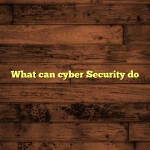Cybersecurity Course Requirements: A Comprehensive Guide
Table of Contents:
- Academic Prerequisites
- For Bachelor’s Degree Programs
- For Graduate Degree Programs
- Credit Hour Requirements
- Core Curriculum Components
- Professional Certifications Integration
- Admission Considerations Beyond Academics
- FAQ
Cybersecurity Course Requirements: A Comprehensive Guide
Is a career in cybersecurity right for you? A well-structured cybersecurity course is designed to furnish you with the knowledge combined with the talents to safeguard computer systems, networks, as well as data from cyberattacks. What it takes to enroll successfully in one of these courses depends. It hinges on the level of study (undergraduate or graduate), the institution delivering the program, as well as whether it’s a degree course or merely a certification. Below is a synopsis of typical requirements linked to cybersecurity courses.
Academic Prerequisites
What are the general academic pre-requisites?
To succeed in a cybersecurity program, you will generally need to meet specific academic criteria. These requirements are different for bachelor’s and master’s degree programs.
For Bachelor’s Degree Programs
Most bachelor’s degree programs in cybersecurity require applicants to fulfill specified academic standards prior to admission. These standards generally include the elements below:
- GPA Requirements – A GPA of around 3.0 on a 4.0 scale is commonly anticipated for entry into undergraduate cybersecurity programs. More selective schools require even higher GPAs. Others might accept somewhat lower scores.
- Standardized Test Scores – Some universities demand SAT or ACT scores, though this varies.
- Prior Experience or Coursework – Demonstrating an interest in, or talent for, computer science fundamentals can strengthen your application. One may show this through earlier coursework in programming, information technology, participation in competitions, being a member of tech clubs, also through the completion of related certifications.
For Graduate Degree Programs
Master’s programs frequently expect applicants to hold a bachelor’s degree, ideally in a field related to computer science, information technology, software engineering that emphasizes security, or directly in cybersecurity. In addition:
- A good GPA is still important, most times hovering around 3.0, but this fluctuates.
- Applicable work experience – especially hands-on experience in IT security – is valued highly, as it shows readiness for advanced study in addition to professional practice.
Credit Hour Requirements
Cybersecurity degrees usually mandate the completion of around 120 credit hours at the bachelor’s level. These hours cover general education courses, including major coursework. One example:
- General education credits usually total around 60, covering basics like mathematics (e.g., college algebra), communication, the humanities, or social sciences.
- Cybersecurity major courses take around 50 credits, specializing in network security, cryptography, ethical hacking, digital forensics, secure software development, next to varied additional studies.
You will often need to pick elective courses within the major, totaling at least nine credits. This enables you to tailor your expertise, based on interests such as penetration testing alternatively cyber law.
Core Curriculum Components
A typical cybersecurity curriculum comprises both the theories as well as real-world applications.
- Programming Skills – Courses that teach languages appropriate for security assignments, such as Python, are typical. Scripting helps automate hazard detection.
- Network Security – Grasping how networks operate safely – including firewall configuration in addition to intrusion detection systems – forms a critical part of training.
- Cryptography – You will learn about encryption algorithms. These algorithms protect data confidentiality and integrity during transmission including storage.
- Ethical Hacking/Penetration Testing – Hands-on labs simulate attacks, so that you can understand vulnerabilities from an attacker’s viewpoint ethically.
- Incident Response & Digital Forensics – The training covers how to detect breaches promptly coupled with how to investigate incidents effectively.
These components make certain that graduates are equipped not just academically, however practically for real-world challenges. Cybersecurity professionals face such challenges often.
Professional Certifications Integration
Formal degrees give comprehensive knowledge over a longer duration (around four years for a bachelor’s degree). Many learners also get industry certifications. Certifications validate certain talent sets fast. Popular certifications include:
| Certification | Typical Requirement | Focus Area |
| CompTIA Security+ | Basic IT knowledge recommended | Entry-level security concepts |
| Certified Information Systems Security Professional (CISSP) | Minimum five years work experience across multiple domains | Advanced enterprise-level security management |
| Google Cybersecurity Professional Certificate | None – beginner-friendly online course format | Fundamentals and hazard detection |
Certifications often serve different functions: some prepare newcomers, others target seasoned practitioners, such as those aspiring to leadership roles like Chief Information Security Officer (CISO).
Admission Considerations Beyond Academics
Universities consider aspects outside of academics during admissions. Some of these considerations include: letters of recommendation emphasizing technical skills, a personal statement explaining career goals, portfolios showcasing programming/security projects, and/or participation in hackathons showcasing problem-solving skills.
FAQ
What GPA do I need to get into a cybersecurity program?
Most bachelor’s degree programs expect a GPA of around 3.0 on a 4.0 scale. More selective schools may have higher requirements.
Is work experience required for a master’s degree in cybersecurity?
Relevant work experience, particularly hands-on experience in IT security, is valued highly, showing readiness for advanced study.
Are professional certifications necessary for a cybersecurity career?
Professional certifications are not necessary but can validate specific skill sets and may be beneficial, especially for newcomers or those seeking career advancement.
Resources & References:
- https://cybersecurityguide.org/programs/cybersecurity-bachelors-degree/
- https://www.simplilearn.com/tutorials/cyber-security-tutorial/how-to-become-cyber-security-engineer
- https://www.atera.com/blog/best-cybersecurity-courses/
- https://www.citytech.cuny.edu/computer-systems/docs/2025_BS_Cybersecurity_Curriculum.pdf
- https://www.coursera.org/articles/popular-cybersecurity-certifications





